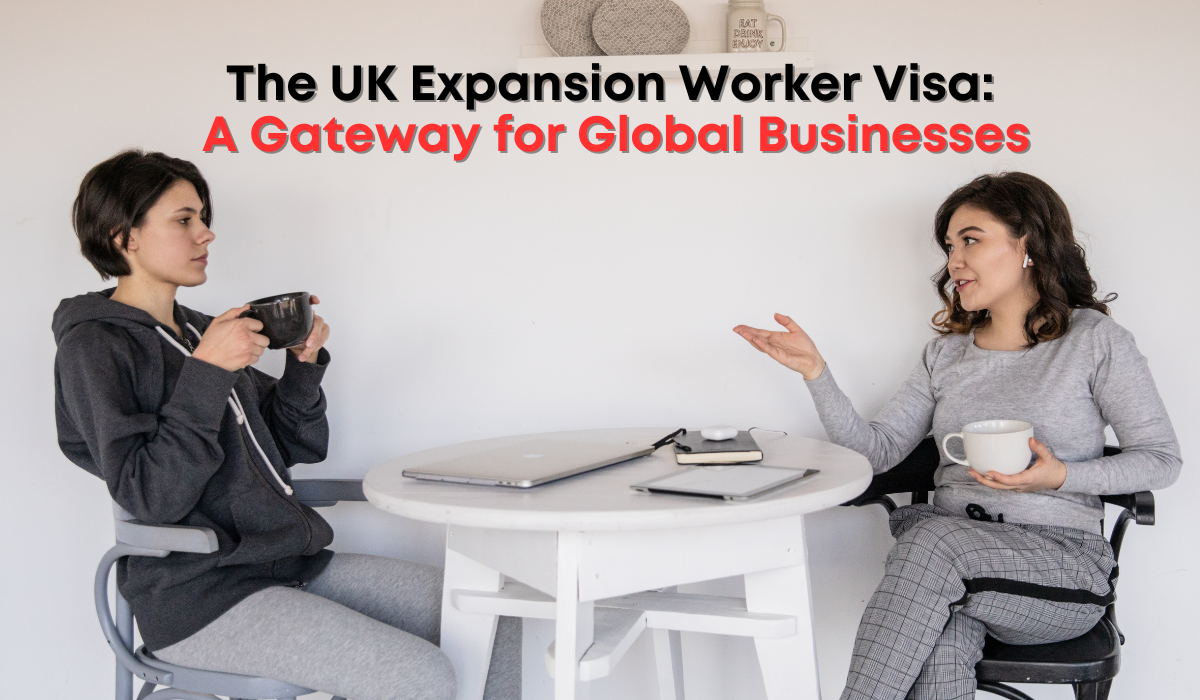The Global Business Mobility – UK Expansion Worker Visa stands as a vital pillar for international businesses aiming to establish a foothold in the United Kingdom. Tailored for senior managers and specialist employees, this visa route facilitates the expansion of overseas enterprises into the UK. It is an essential component of the UK’s post-Brexit immigration framework, encouraging international investment while maintaining robust regulatory oversight. Below, we explore the details, eligibility criteria, and strategic advantages of this visa category.
Understanding the UK Expansion Worker Visa
The UK Expansion Worker Visa is specifically designed for businesses that have not yet commenced trading in the UK. It allows up to five senior managers or specialist employees to temporarily relocate and undertake work linked to the establishment of a UK branch or subsidiary. However, if a business is already operational in the UK, alternative routes such as the Global Business Mobility – Senior or Specialist Worker Visa may be more appropriate. Additionally, business owners interested in self-sponsorship may explore the Skilled Worker Visa.
This visa does not directly lead to settlement but offers pathways to transition into settlement-qualifying routes like the Skilled Worker or Innovator Founder Visa. Dependants, including partners and children under 18, can accompany the visa holder, making it a comprehensive solution for business families.
Key Requirements for Eligibility
To qualify for the UK Expansion Worker Visa, applicants must meet the following criteria:
- Age and Employment Link: Applicants must be at least 18 years old and employed by a business linked to the UK sponsor through common ownership or control.
- Overseas Work Experience: A cumulative 12 months of employment with the linked overseas business is required, except for high earners (£73,900 or more annually), Japanese nationals under the UK-Japan Comprehensive Economic Partnership Agreement, or Australians under the Free Trade Agreement.
- Certificate of Sponsorship (CoS): The UK sponsor must issue a valid CoS detailing the applicant’s name, job role, salary, and other mandatory information. The CoS must be issued within three months of the application date.
- Skill and Salary Thresholds: Jobs must meet RQF Level 6 (graduate equivalent) and offer a minimum salary of £48,500 or the going rate for the occupation code, whichever is higher.
- Financial Requirement: Applicants must demonstrate at least £1,270 in personal savings unless they have been in the UK for over 12 months.
- Health Compliance: If applicable, a valid tuberculosis (TB) test certificate must be provided.
The Overseas Work Requirement
For applicants earning below £73,900, a minimum of 12 months of overseas work with the linked business is mandatory. Exceptions apply for high earners and nationals from Japan or Australia under relevant trade agreements. Importantly, the 12-month requirement can be accumulated historically, provided there have been no significant breaks in employment, other than statutory leave or humanitarian commitments.
Application Process and Sponsor Responsibilities
The sponsoring business must hold a Global Business Mobility sponsor licence with an A-rating from the Home Office. Sponsors must demonstrate an intention to establish a UK branch or subsidiary and provide credible evidence such as a detailed business plan, proof of financial capability, and preparatory steps towards expansion. Businesses without a trading presence in the UK must still meet “UK footprint” requirements, such as premises or Companies House registration.
Additionally, the role being sponsored must align with an eligible SOC 2020 occupation code, and the sponsor must choose the most appropriate code to reflect the job’s genuine need. Misrepresentation or failure to comply with these requirements can result in application refusals.
Advantages and Limitations
Advantages:
- Streamlined Expansion: The visa simplifies the process of establishing a UK presence for non-trading overseas businesses.
- Family Integration: Dependants can join the main applicant, fostering family stability.
- Transition Opportunities: Although it does not lead directly to settlement, pathways to settlement-qualifying visas are available.
Limitations:
- Temporary Nature: The visa’s maximum validity is two years, with no direct route to settlement.
- Stringent Compliance: Employers and employees must navigate a complex regulatory landscape, ensuring adherence to skill, salary, and job genuineness requirements.
- Sector-Specific Eligibility: Only certain roles meeting RQF Level 6 criteria are eligible.
Strategic Considerations for Businesses
Businesses must approach the UK Expansion Worker Visa with meticulous planning. A detailed business plan, robust financial projections, and compliance with sponsor duties are crucial. Furthermore, identifying key personnel to manage the sponsor licence and ensuring their suitability is paramount. In cases where a settled worker cannot act as the Authorising Officer, the rules allow for a provisional rating and the appointment of the first sponsored employee as the Authorising Officer upon arrival in the UK.
Final Takes: Driving Global Mobility and Economic Growth
The Global Business Mobility – UK Expansion Worker Visa is an invaluable tool for overseas businesses aiming to tap into the UK’s vibrant market. By providing a structured pathway for skilled professionals to establish new branches, this visa category fosters international collaboration and economic growth. However, navigating its complexities demands expert legal and strategic advice.
For tailored guidance on the UK Expansion Worker Visa or assistance with sponsor licence applications, contact our expert business immigration team. With comprehensive support, we help businesses unlock the UK’s potential while ensuring compliance with immigration rules.
Get in touch: For a comprehensive understanding of your options or queries on UK immigration matters, contact GigaLegal Solicitors at 02074067654 or click here to book a no-obligation consultation with an immigration expert.


